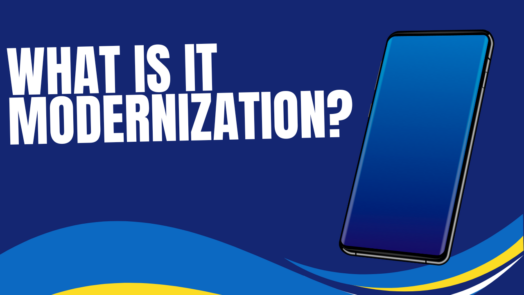Here Is A Introduction to Our Managed IT Services Buyer’s Guide
The modern business is complex. As technology continues to evolve at a rapid rate, more challenges are created than ever before. There are numerous types of hardware, software, and other advanced forms of technologies that need to be integrated together to support end-users. So how do you use technology as a business-driver rather than yet another necessary expense? Is there a way to make the evolution of technology work for you rather than against you?
Fortunately, the right technology partner can help.
But who IS the right technology partner? Isn’t it enough to have someone you can call when things break? Not anymore. The old break/fix model of approaching technology simply doesn’t work for modern businesses. There is too much risk involved with not having access to your systems and/or data for hours, or worse, days at a time. You need a more proactive model to keep your technology working for you rather than against you.
That’s where our managed IT services buyer’s guide comes in. We’re here to help you understand what exactly a managed service provider (MSP) is, what they provide, and how it helps modern businesses like yours. In our buyer’s guide, you will learn:
- What MSPs do and how they do it
- What the individual components of a managed IT service plan include
- How managed IT services are delivered
- What the benefits of managed IT services are
- How to choose the best MSP for you
- And much, much more
In this introduction, we’ll quickly review what MSPs do and how they do it. As we move forward in our buyer’s guide, you’ll learn everything you need to know to make an informed choice when it comes to the management of your technology.
What is an MSP?
Since the early 1990s, businesses and government agencies of all types have looked towards MSPs to help manage their IT infrastructure. In the past, break/fix support was relied upon to help resolve technology issues. But as technology continued to evolve, MSPs started popping up all over the place – offering a more proactive approach wherein they monitored the infrastructure for issues and performed various types of preventative maintenance to keep technology running at peak performance.
Essentially, an organization outsources part or all of their technology support to an MSP. This gives them access to the latest technologies and the experts required to integrate, support, and maintain them. Rather than building an internal team or paying for support when things break, an MSP gives you all of the support and services you need for a fixed monthly fee. They deliver a range of services, including:
- Network design/configuration
- End-user support (remote or onsite)
- Cybersecurity
- Strategic technology planning
- Hardware maintenance
- End-user training
- Mobile device management
- Backup and disaster recovery
- Application management
- Network monitoring and reporting
- Asset management
- And more
An MSP is able to maintain control and responsibility for all on-premises and cloud-based systems, such as:
- Desktops
- Databases
- Operating systems
- Servers
- Laptops
- Mobile devices
- Networks
- Firewalls
- Routers
- Switches
- And more
They will typically manage all of the above in accordance with an agreed-upon performance standard, which is found in a service level agreement (SLA). Although many MSPs deliver the same services in virtually the same way, a good MSP takes a strategic approach – weaving technology into your overall business plan to help you meet goals, achieve objectives, and tackle challenges.
This buyer’s guide is designed to help you navigate the decision-making process because we know finding an MSP is a huge, time-consuming choice. After all, your technology plays a critical role in your day-to-day operations. Keep an eye out for the next installment in our buyer’s guide to learn more.
Interested in receiving an alert when the next installment is released? Questions about what you’ve read? Contact us at (978) 528-0110 or email us at info@radiusits.com.





